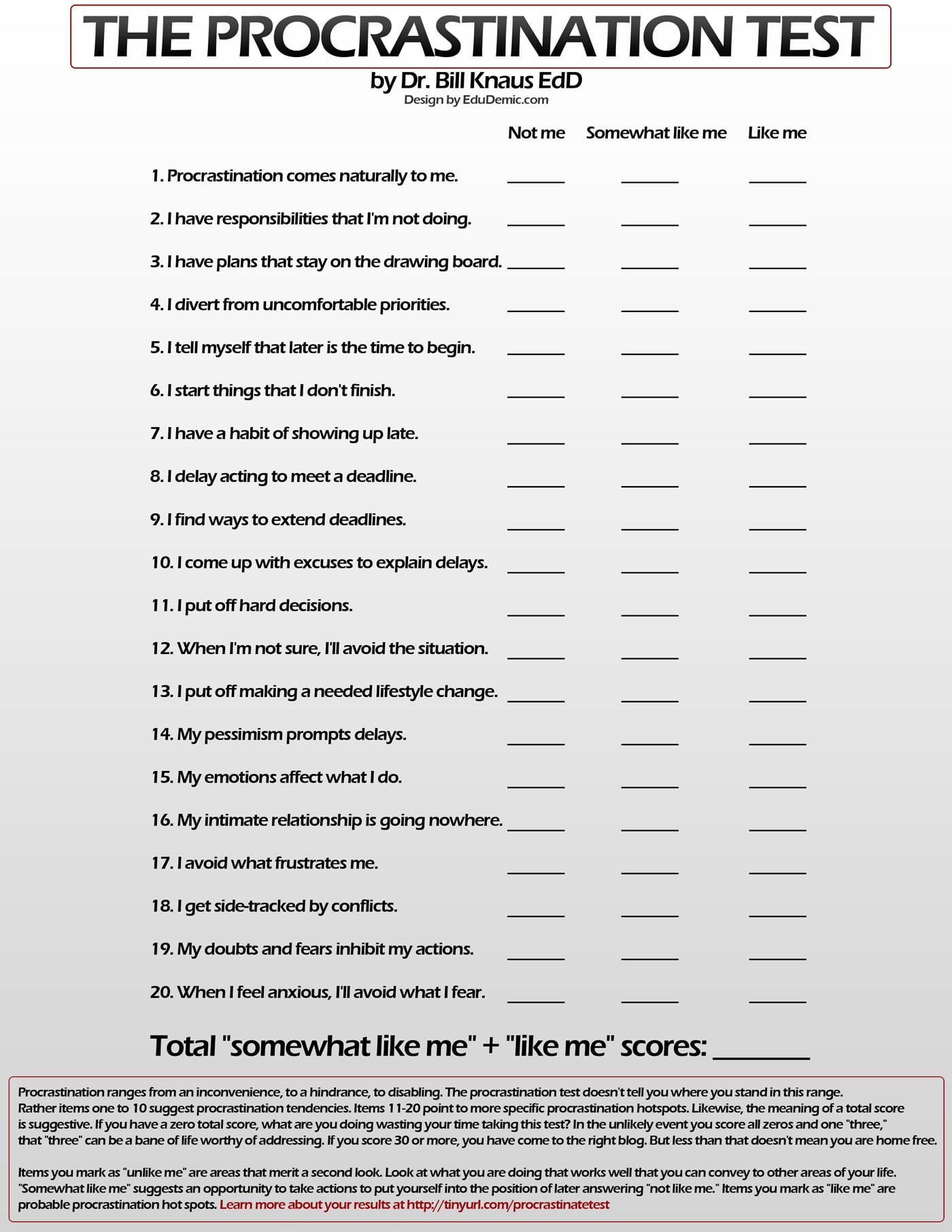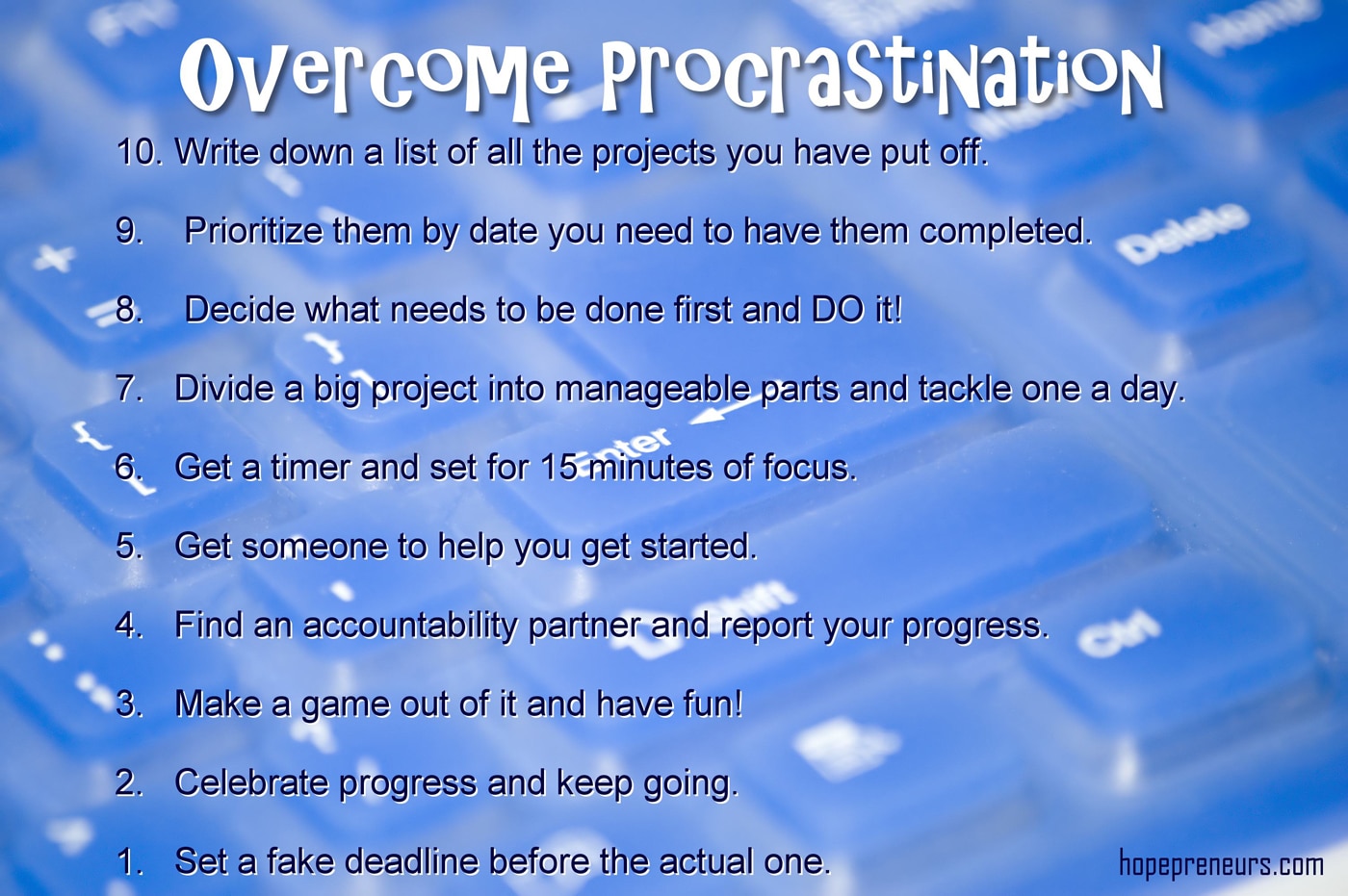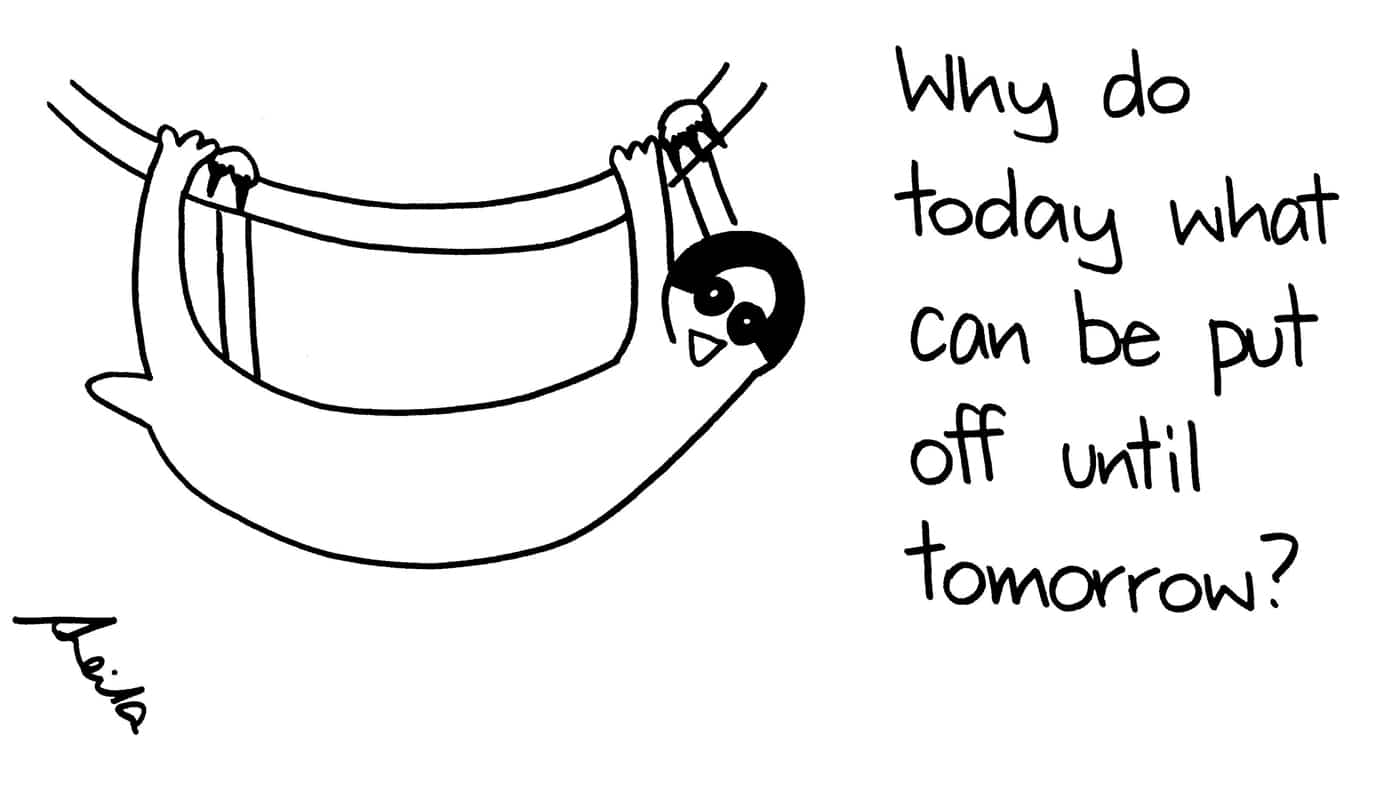Procrastinating is such an annoying habit, even to the people who are doing it. I read an article a while back (I wish I could remember where) that said creative people are typically procrastinators. This happens for two reasons. First, because creative individuals need to feel inspired in order to work on something, and if they aren’t inspired, they’ll procrastinate the task until later. Creative people also often procrastinate because they are perfectionists when it comes to their craft, and if they don’t feel like they have enough time to complete the project to their rigid standards, they’ll procrastinate it until later. I never realized until today though that there is actually a science behind procrastination. It’s a fascinating one too.
According to this video, there is a human tendency to over or underestimate a reward based on its temporal proximity. For example, if we have a test we know we are going to have to take on Friday – the reward of passing doesn’t seem like a big deal on Monday because it’s so far away in time in our minds. However, suddenly on Thursday night, when that time is much shorter, the reward of passing or even getting a good grade seems much more valuable, so we stay up all night cramming.
In other words, the science behind procrastination all comes down to how human beings relate to time (which from a physics standpoint I think is a bit skewed anyway – but I’ll save that for another article). There are some legit ways we can fool our brains into not procrastinating though, or at least not procrastinating as much. That’s where the science behind it all comes into play.
Remember, if you tell your brain something over and over, you will start to believe it even if it isn’t true. If you impose fake deadlines on yourself, and tell yourself it’s due on that date, you will find that your body and mind won’t want to procrastinate it as much. Then you’ll finish the task before the real deadline. I use this trick on myself all the time, and it works. This video about the science behind procrastinating by AsapSCIENCE is short, well done and so interesting. I hope you enjoy it!
The Science Behind Procrastination
Take this test to determine your level of procrastination.
More tips to possibly help you overcome procrastination.
Image Credits: [Hopepreneurs] [edudemic] [Cartoons by Sheila] [The HHS Regional Extension Center]



COMMENTS